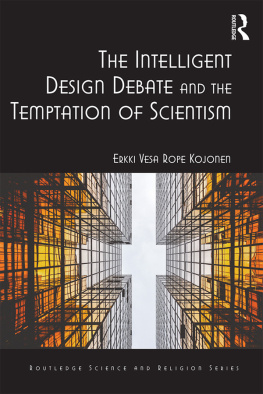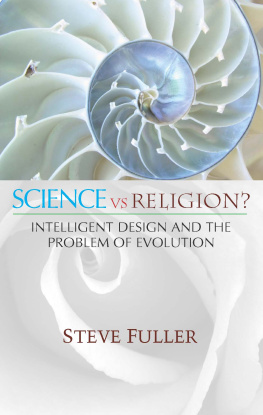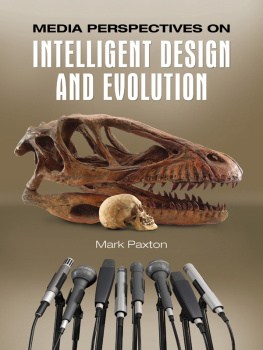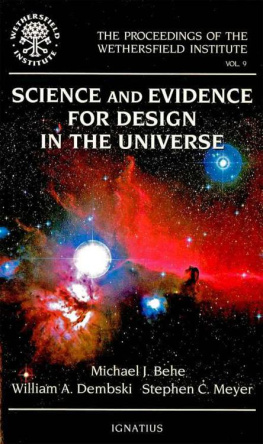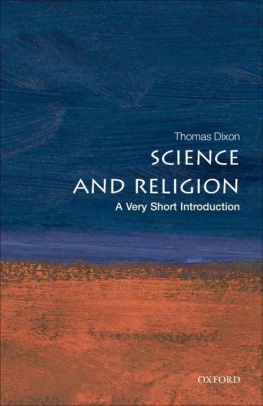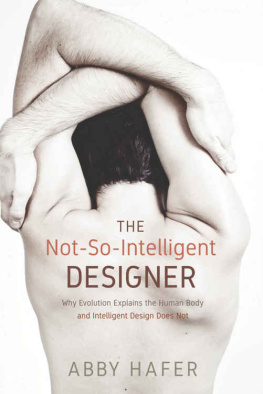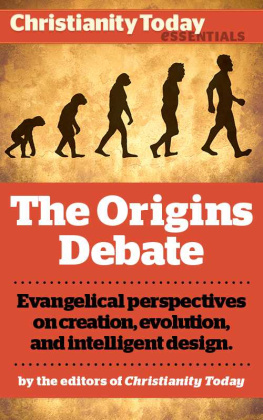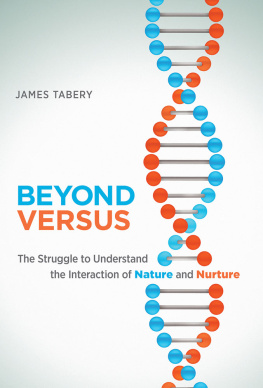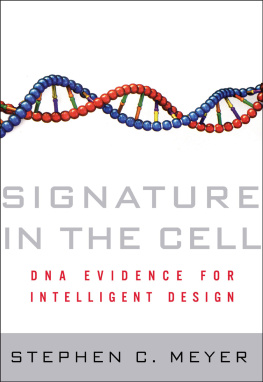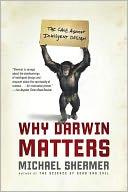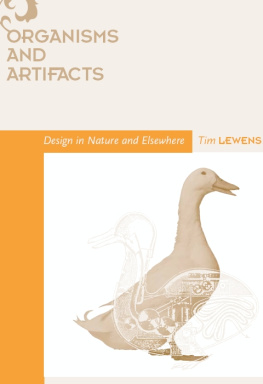The Intelligent Design Debate and the Temptation of Scientism
The controversy over Intelligent Design (ID) has now continued for over two decades, with no signs of ending. For its defenders, ID is revolutionary new science, and its opposition is merely ideological. For its critics, ID is both bad science and bad theology. But the polemical nature of the debate makes it difficult to understand the nature of the arguments on all sides.
A balanced and deep analysis of a controversial debate, this volume argues that beliefs about the purposiveness or non-purposiveness of nature should not be based merely on science. Rather, the philosophical and theological nature of such questions should be openly acknowledged.
Dr. Erkki Vesa Rope Kojonen is a postdoctoral researcher at the University of Helsinki, Faculty of Theology. He is also the editor of the Finnish Science and Theology magazine Areiopagi.fi, and has participated widely in discussions on science and theology both in his home country and internationally. His research interests also include the general discussion between faith and reason, philosophy of science as well as theology more generally. He was born in 1982, is married and lives in Espoo, Finland with his wife and three children.
Routledge Science and Religion Series
Series Editors:
Roger Trigg, Emeritus Professor, University of Warwick, and Academic Director of the Centre for the Study of Religion in Public Life, Kellogg College, Oxford
J. Wentzel van Huyssteen, Princeton Theological Seminary, USA
Science and religion have often been thought to be at loggerheads but much contemporary work in this flourishing interdisciplinary field suggests this is far from the case. The Routledge Science and Religion Series presents exciting new work to advance interdisciplinary study, research and debate across key themes in science and religion, exploring the philosophical relations between the physical and social sciences on the one hand and religious belief on the other. Contemporary issues in philosophy and theology are debated, as are prevailing cultural assumptions arising from the post-modernist distaste for many forms of reasoning. The series enables leading international authors from a range of different disciplinary perspectives to apply the insights of the various sciences, theology and philosophy and look at the relations between the different disciplines and the rational connections that can be made between them. These accessible, stimulating new contributions to key topics across science and religion will appeal particularly to individual academics and researchers, graduates, postgraduates and upper-undergraduate students.
The Roots of Religion
Exploring the Cognitive Science of Religion
Edited by Roger Trigg and Justin L. Barrett
Being as Communion
A Metaphysics of Information
William A. Dembski
Christian Moral Theology in the Emerging Technoculture
From Posthuman Back to Human
Brent Waters
The Intelligent Design Debate and the Temptation of Scientism
Erkki Vesa Rope Kojonen

First published 2016
by Routledge
2 Park Square, Milton Park, Abingdon, Oxon OX14 4RN
and by Routledge
711 Third Avenue, New York, NY 10017
Routledge is an imprint of the Taylor & Francis Group, an informa business
2016 Taylor & Francis
The right of Erkki Vesa Rope Kojonen to be identified as author of this work has been asserted by him in accordance with sections 77 and 78 of the Copyright, Designs and Patents Act 1988.
All rights reserved. No part of this book may be reprinted or reproduced or utilised in any form or by any electronic, mechanical, or other means, now known or hereafter invented, including photocopying and recording, or in any information storage or retrieval system, without permission in writing from the publishers.
Trademark notice: Product or corporate names may be trademarks or registered trademarks, and are used only for identification and explanation without intent to infringe.
British Library Cataloguing in Publication Data
A catalogue record for this book is available from the British Library
Library of Congress Cataloging-in-Publication Data
Kojonen, Erkki V. R. The intelligent design debate and the temptation of scientism / by Erkki V. R. Kojonen.
pages cm.(Ashgate science and religion series)
Includes bibliographical references and index.
ISBN 978-1-4724-7250-2 (hardcover : alk. paper)
ISBN 978-1-4724-7251-9 (ebook)ISBN 978-1-4724-7252-6 (epub) 1. Intelligent design (Teleology) 2. Evolution (Biology)Religious aspectsChristianity. 3. Scientism. I. Title.
BS659.K65 2016
124dc23
2015031559
ISBN: 9781472472502 (hbk)
ISBN: 9781315556673 (ebk)
Typeset in Bembo
by Apex CoVantage, LLC
Contents
The discussion on Intelligent Design is controversial and the rhetoric is often volatile. Someone like me, who finds both something to like and something to criticize in Intelligent Design, can feel like a lonely duck, as theologian Thomas Jay Oord has stated. With this research monograph, I am joining this society of lonely ducks. My goal with this book has been to write an eirenic, balanced and deep analysis of the debate, from which readers of varying viewpoints could benefit, regardless of whether they agree with every position defended in the book. I am also glad to be able to give a voice to all the other lonely ducks out there.
This study began its life as a dissertation, and is the result of several years of research, writing and dialogue with proponents of various views on Intelligent Design. As such the book would have been impossible to complete without the support of many people and institutions, whom I now wish to thank. Pauli Annala, Heikki Helanter, Toivo Holopainen, Timo Koistinen, Jeffrey Koperski, Pekka Krkkinen, Leo Nreaho, Juha Pihkala, Anne Runehov, Miikka Ruokanen, Robert J. Russell and others read parts of the manuscript and provided invaluable feedback on it from their often very different perspectives. In addition, Aku Visala, Olli-Pekka Vainio and many other friends, colleagues, students and readers of our Finnish Areiopagi.fi webmagazine have spent countless hours discussing theology, philosophy and the natural sciences with me, which has provided great stimulus for the development of my thought. I have done my best to benefit from the excellent advice I have received. However, my conversation partners should not be assumed to agree with each other, or with everything that I have written.
The Faculty of Theology at the University of Helsinki has provided an intellectually stimulating environment that is open to different approaches and discussion between them. International visits to the Center for Theology and the Natural Sciences (Berkeley, California) and the Ian Ramsey Centre (Oxford) were invaluable for broadening my perspective on the international discussion in the field of religion and science studies. The funding for the research project culminating in this book was received from the Finnish Doctoral Programme of Theology, the Faculty of Theology at the University of Helsinki, the Church Research Institute of the Finnish Evangelical-Lutheran church, the Emil Aaltonen Foundation and the Karl Schlect Stiftung. Their funding made it possible for me to seize the moment and devote the needed time for this study.

